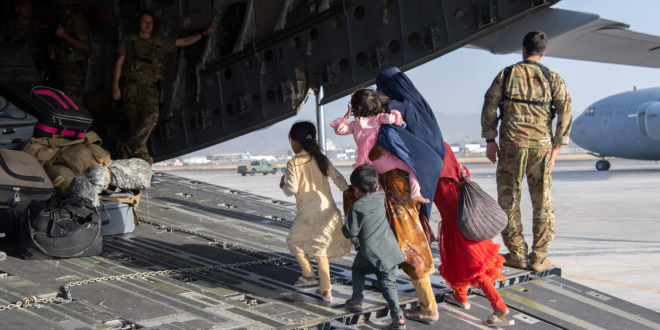KABUL – The fate of 70,000 Afghan refugees who sought safety in the United States after fleeing the Taliban’s resurgence in 2021 could hinge on the outcome of the 2024 presidential election. These Afghans, many of whom worked as interpreters or provided support for US and NATO forces, were granted temporary humanitarian parole by President Biden in 2021, allowing them to legally stay in the country under emergency circumstances. However, their legal future remains in jeopardy as they await a more permanent solution.
The upcoming election could determine whether this temporary protection will continue or be revoked. Former President Donald Trump, seeking a return to office, has hinted at reversing Biden’s humanitarian parole policy. Trump’s stance raises fears that the thousands of Afghans currently living in the US could face deportation or be forced to return to an Afghanistan now controlled by the Taliban. For these refugees, many of whom risked their lives assisting US forces, such a reversal would be devastating.
While President Biden extended the humanitarian parole program in 2023, it only provides temporary relief, leaving the Afghan evacuees in a state of legal uncertainty. Without permanent residency or citizenship, they face challenges accessing stable employment, housing, and long-term security. The Afghan Adjustment Act, a bipartisan proposal in Congress, seeks to grant permanent legal status to these refugees, but the bill has stalled amid political gridlock.
Supporters of the Afghan Adjustment Act argue that the US has a moral obligation to protect those who aided its war efforts, similar to the treatment of Vietnamese, Cuban, and Ukrainian refugees in the past. However, opposition from key Republican lawmakers, including Senator Chuck Grassley, has stymied progress. Critics argue that security risks remain due to inadequate vetting procedures and believe that only Afghans who worked directly with US military forces should be considered for permanent residency.
As the election approaches, this issue has become a political flashpoint. Biden’s administration has emphasized the importance of honoring commitments made to Afghan allies, while Trump and some Republicans have framed the debate in terms of national security and immigration control. The next president’s stance will be critical in deciding whether these refugees will find a permanent home in the US or face an uncertain and potentially perilous future.
The stakes are high, not just for the 70,000 Afghan evacuees but also for the US’s broader approach to refugee resettlement and its responsibilities to those who supported its military efforts abroad. The outcome of the 2024 election may ultimately determine whether the US upholds its humanitarian commitments or adopts a more restrictive policy.
 Afghanistan Times
Afghanistan Times




